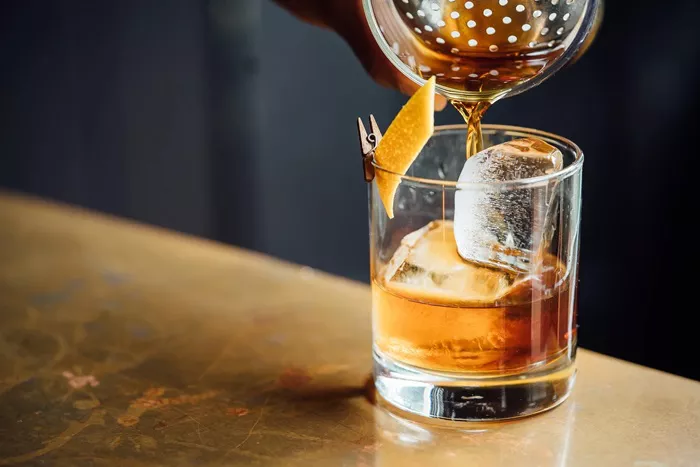Spirits, often referred to as hard liquor or distilled beverages, hold a special place in the world of alcoholic drinks. From the smooth sophistication of whisky to the fiery kick of tequila, each spirit offers a unique experience. But what exactly sets them apart? What makes spirits different from one another? Exploring the nuances of production, ingredients, aging, and cultural influences unveils the distinct characteristics that define each spirit category.
1. Origins and Ingredients:
At the heart of what makes spirits different lies their origins and ingredients. Whether it’s vodka, rum, gin, or whiskey, the base ingredients and the regions where they are produced greatly influence their flavor profiles. Vodka, for instance, is typically made from grains like wheat or rye, resulting in a clean and neutral taste. Contrastingly, rum derives its flavor from sugarcane or molasses, offering a sweet and sometimes spicy profile. Gin stands out with its infusion of botanicals, including juniper berries, which give it a distinctive herbal aroma. Meanwhile, whiskey, depending on its type—whether it be Scotch, bourbon, or rye—is crafted from grains such as barley, corn, or rye, each lending its own character to the final product.
2. Distillation Process:
Another crucial aspect of what makes spirits different is the distillation process. This process involves heating a fermented liquid to create vapor, which is then condensed back into a liquid form. The number of times a spirit is distilled, the type of still used, and the techniques employed all contribute to its flavor and quality. For instance, vodka is often distilled multiple times to achieve its desired purity, while whiskey, particularly Scotch, may undergo a double distillation in pot stills, resulting in a more complex and robust flavor profile. The distillation process is where the spirit’s inherent characteristics are refined and enhanced, ultimately shaping its unique identity.
3. Aging and Maturation:
Aging and maturation play a significant role in what makes spirits different. While some spirits are enjoyed young and unaged, such as white rum and silver tequila, others benefit from years of aging in oak barrels. Bourbon, for example, must be aged in new charred oak barrels, imparting flavors of caramel, vanilla, and oak over time. Similarly, Scotch whisky gains complexity and depth as it matures in barrels previously used for aging sherry or bourbon, absorbing the flavors from the wood and the residual spirits. The length and conditions of aging can drastically alter the taste, aroma, and mouthfeel of a spirit, distinguishing it from others in its category.
See Also: Exploring the World of Rum: What is the Best Rum to Buy?
4. Flavor Profiles and Varieties:
One of the most apparent factors in what makes spirits different is their diverse flavor profiles and varieties. From the bold smokiness of Islay Scotch to the smooth sweetness of Tennessee whiskey, each spirit category encompasses a wide range of expressions. Tequila, for instance, comes in various styles, including blanco, reposado, and añejo, each offering distinct flavors and aging characteristics. Similarly, gin enthusiasts can explore a plethora of botanical combinations, from classic London dry gin to contemporary craft variations infused with exotic ingredients. The versatility within each spirit category allows for exploration and appreciation of nuanced flavors, catering to diverse palates and preferences.
5. Cultural Influences and Traditions:
Beyond production techniques and flavor profiles, cultural influences and traditions also contribute to what makes spirits different. The geographical regions where spirits originate often have deep-rooted traditions and rituals associated with their consumption. For example, Scotch whisky is steeped in Scottish heritage, with distilleries nestled in picturesque landscapes and age-old production methods passed down through generations. In contrast, tequila is deeply intertwined with Mexican culture, with agave cultivation and distillation techniques dating back centuries. These cultural influences not only shape the character of the spirits but also imbue them with a sense of history and identity that sets them apart.
6. Mixology and Cocktails:
The world of mixology further highlights what makes spirits different, as bartenders and enthusiasts experiment with creative cocktails and flavor combinations. Each spirit brings its own set of characteristics to a cocktail, whether it’s the base spirit in a classic martini or a supporting role in a complex tiki drink. Vodka’s neutrality makes it a versatile canvas for a wide range of flavors, while the distinctive botanicals in gin lend depth and complexity to cocktails like the Negroni and the Gin and Tonic. Whiskey-based cocktails, from the iconic Old Fashioned to the trendy Whiskey Sour, showcase the spirit’s rich flavors and versatility, appealing to both traditionalists and adventurous drinkers alike.
7.Quality and Craftsmanship:
Finally, what makes spirits different is the dedication to quality and craftsmanship exhibited by distillers and producers around the world. From small-batch artisanal distilleries to centuries-old heritage brands, attention to detail and a commitment to excellence set certain spirits apart from the rest. Craft distillers often prioritize sourcing high-quality ingredients, employing traditional techniques, and embracing innovation to create distinctive expressions that stand out in a crowded market. Meanwhile, established distilleries with generations of expertise bring unparalleled depth and complexity to their spirits, earning them a reputation for excellence that transcends borders and generations.
In Conclusion
What makes spirits different encompasses a myriad of factors, from their origins and ingredients to the distillation process, aging, and cultural influences. Each spirit category offers a unique journey of exploration and discovery, inviting enthusiasts to delve into their diverse flavor profiles, traditions, and craftsmanship. Whether enjoyed neat, on the rocks, or in creative cocktails, spirits captivate the senses and ignite the imagination, leaving a lasting impression that transcends mere libation. As we raise our glasses to toast the rich tapestry of spirits that grace our glasses, let us celebrate the artistry and diversity that make them truly special.


